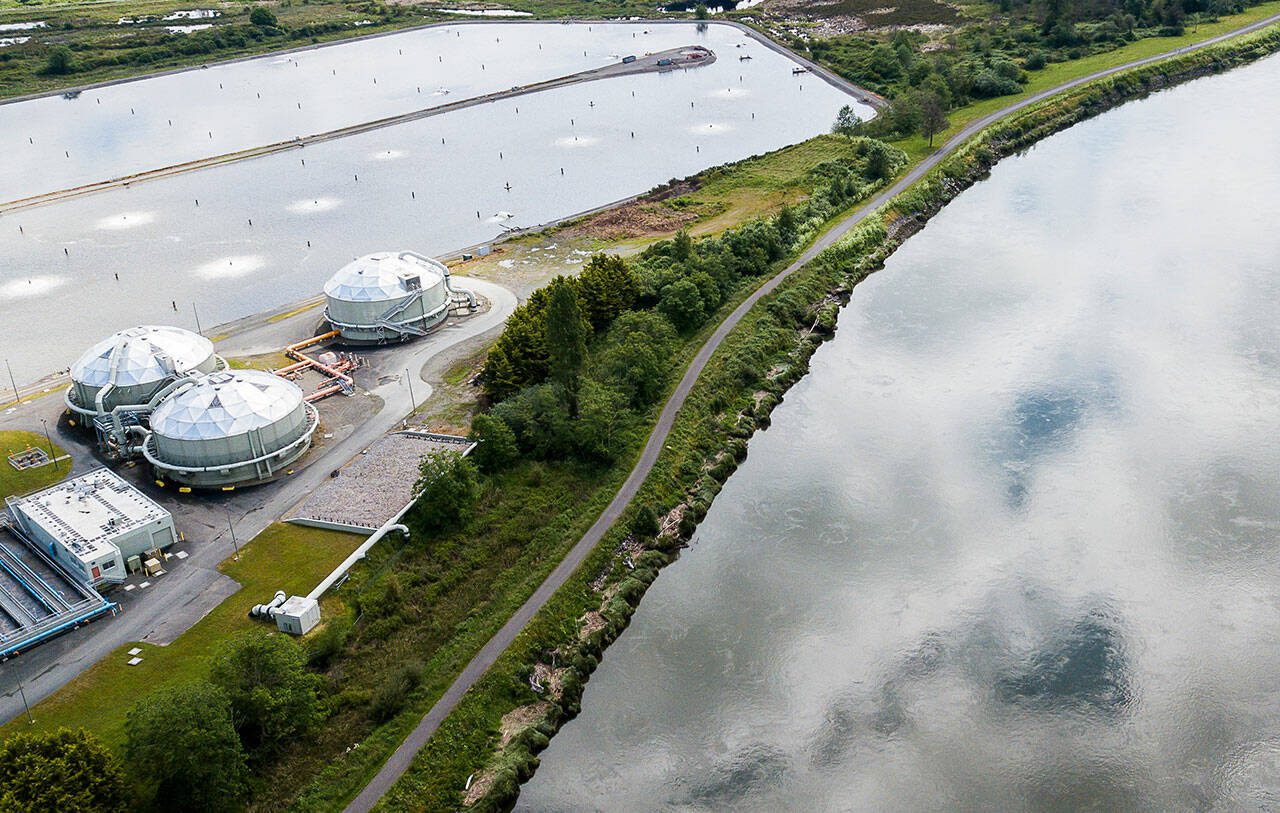EVERETT — Water and sewer rates in Everett will jump by just over 43% over the next four years after the City Council unanimously approved increases on Wednesday.
The council increased rates to cover the rising cost of construction and fund a number of vital infrastructure projects set to take place during the rate window, public works employees previously said.
By 2028, water and filtration rates will rise 19.4% while sewer and surface water rates will jump by 50.5%. Combined rates will go up by 43.4% in that time period. The average monthly bill for a single-family home will go from $122.43 in 2024 to $184.77 in 2028.
Everett’s water system serves about 657,000 people across Snohomish County. Its sewer system serves over 180,000 people. The city’s water filtration plant was recently awarded for exceeding national standards for drinking water treatment.
“This is consequential. It’s a significant rate increase,” Council Vice President Ben Zarlingo said before the vote on Wednesday. “It is something that is mandatory for us to do. It’s critical to our water treatment infrastructure. I want to thank staff for going through this in such detail and taking great care of something that is this large.”
The increases will pay for major construction projects being built in the city to combat combined sewer overflows, which can occur when the city’s sewer systems are strained by intense rainfall. When overflows occur, wastewater can be sent directly into the Snohomish River or Port Gardner Bay with the potential to harm people and animals.
Everett has significantly reduced its combined sewer overflows since the 1980s, but in 2015, the state Department of Ecology ordered the city to reduce the overflows as much as possible by 2027. The city will pay an estimated $200 million to construct the Port Gardner Storage Facility, near Naval Station Everett, which will store stormwater during overflow events and remove pollutants before water reaches Port Gardner Bay. Construction of the facility is set to finish by 2027.
The rate increases will also pay for a $80 million replacement of Reservoir 3, a 20-million gallon reservoir that provides more than half of the city’s water. It was originally constructed using horses and plows over 100 years ago, according to public works finance manager Shaun Bridge, and needed replacing to ensure it was structurally sound. Construction on that project has already begun and is set to be completed by 2028.
Other maintenance projects are being deferred to keep rates low, a “calculated risk to maintain that rate affordability for our customers,” Bridge said at a Dec. 11 briefing to council.
The city’s public works department is an enterprise fund, separate from the city’s general fund. Money for the department comes from rates, fees and grants, which can only go toward water and sewer operations and maintenance.
Will Geschke: 425-339-3443; william.geschke@heraldnet.com; X: @willgeschke.
Talk to us
> Give us your news tips.
> Send us a letter to the editor.
> More Herald contact information.

























